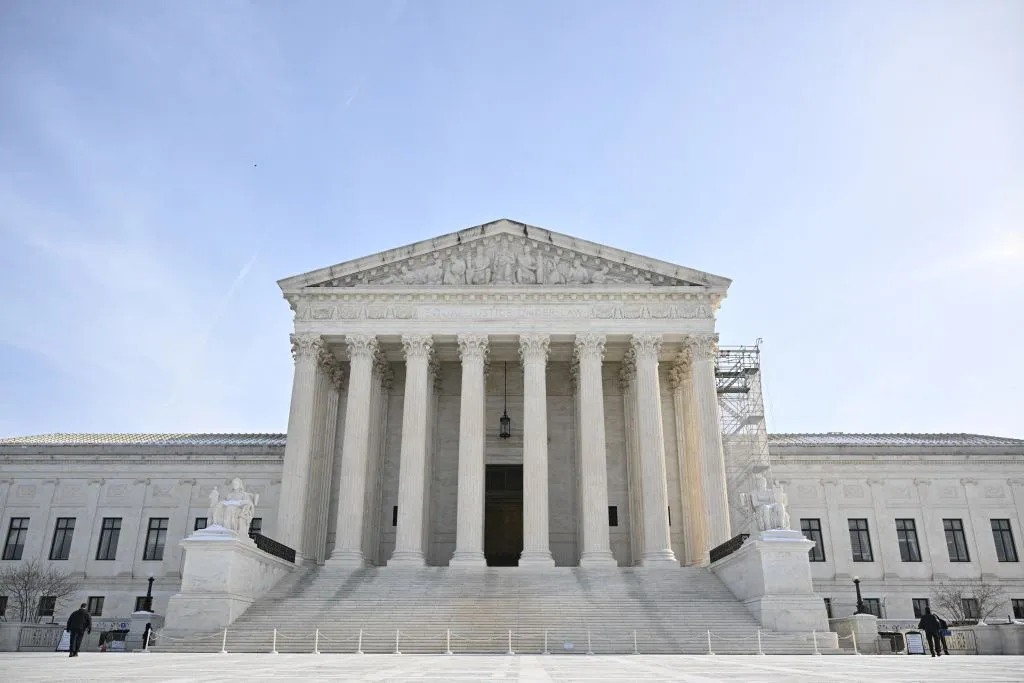Court turns down several cases, including on filing fees for indigent prisoners and ability of felons to possess guns
Birthright citizenship: A note on foundlings and comments on four complementary amicus briefs
Justices to consider breadth of a federal defendant’s waiver of appeal
More news
Supreme Court to consider whether freight brokers can be held liable for negligent hiring
Updated on March 2 at 5:55 p.m.
In Montgomery v. Caribe Transport II, to be argued on Wednesday, March 4, the court will consider whether a federal law initially designed to deal with state trucking regulations supersedes state common-law claims holding freight brokers liable for negligently selecting dangerous motor carriers or drivers. That may not sound particularly fascinating, but the issue before the court, which involves the scope of the Federal Aviation Administration Authorization Act of 1994, could have broad liability implications for transportation logistics and the freight broker industry.
Continue ReadingJustices appear dubious of challenge to constitutionality of foreclosure sales
The argument yesterday in Pung v. Isabella Countyhad two distinct threads. On the one hand, the justices who discussed the question presented seemed to have no doubt that they would reject the idea that the customary practice of selling real estate at an auction to recover delinquent taxes amounts to a taking without just compensation. On the other hand, multiple justices were incensed at what appeared to them to be the high-handed treatment of the taxpayer by the local government.
Continue ReadingThe major debate over major questions in the tariffs decision is only the beginning
Clear Statements is a recurring series by Abbe R. Gluck on civil litigation and the modern regulatory and statutory state.
The Supreme Court’s decision striking down the president’s tariffs last week is generating a lot of chatter in wonky circles about the inside-baseball debate among the justices about the “major questions” rule. All seven of the opinions in the case mention the rule – the judicial presumption that Congress doesn’t delegate big questions to the executive branch without being clear – and each takes a different position. But the debate is a lot more “major” than that. A storm has been brewing at the court about nearly all of the interpretive presumptions that courts use when construing statutes, known as the “canons” of interpretation. It just hasn’t been widely noticed yet. The debate last week offers a mere harbinger of more drama and doctrinal shifts to come. As Justice Neil Gorsuch put it in his opinion, the emergence of these differences among the justices presents “an interesting turn of events. Each camp warrants a visit.”
Continue ReadingUnited States v. Hemani: an animated explainer
SCOTUSblog is thrilled to introduce the first in a series of animated videos, done in partnership with Briefly, on some of the most important upcoming cases of the 2025-26 term. Today’s video is an introduction to United States v. Hemani, to be argued on Monday, March 2, which asks whether an unlawful user of any controlled substance may be prohibited from possessing a gun under the Second Amendment. Although the video speaks for itself, it provides a one-of-a-kind introduction to this case and the important (and difficult) questions that it raises.
***
Briefly is a tech-enabled legal content company whose mission is to make legal information more engaging and accessible.
Briefly merges deep legal knowledge with design and animation to produce rigorous, visually sophisticated content for law firms, companies, and courts. Its work includes bespoke legal content projects and a growing subscription platform that helps organizations scale legal knowledge across teams.
Court rejects ICE contractor’s right to immediate appeal
The opinion yesterday in The GEO Group v. Menocal rejects the efforts of a contractor for ICE to get an immediate appeal from a district court judgment. The case involves claims by ICE detainees challenging the conditions of their confinement by a contractor operating an ICE detention facility – specifically, the detainees contended that the contractor’s operation of the facility involved forced, unpaid labor, violating various federal and state laws.
The contractor, GEO Group, asked the trial court to dismiss the suit out of hand, arguing that it was simply following ICE’s instructions. When the district court refused, the contractor appealed. It lost again in the appellate court, as that court concluded that this is not the kind of question that justifies an immediate appeal – the contractor, so the court of appeals held, had to wait until after a trial in the district court to bring the case to the appellate court.
Continue Reading